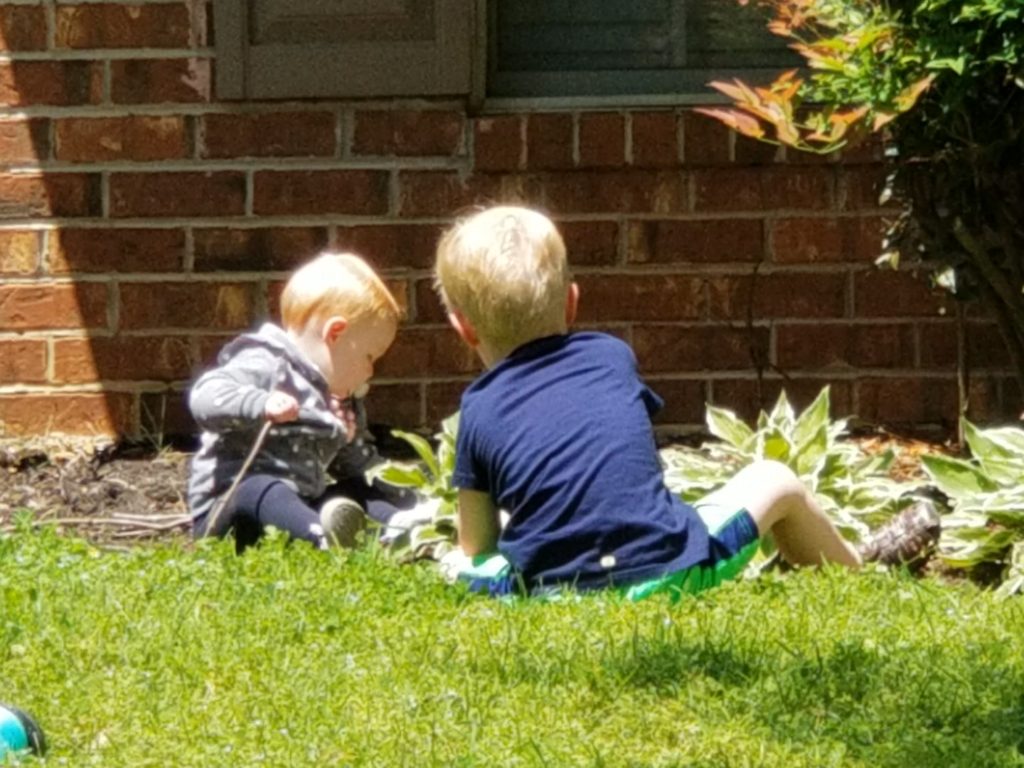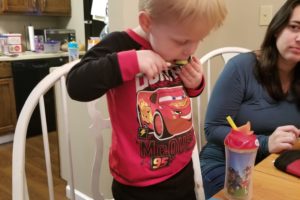Table of Contents
The Right Kind of Trust
When do you let your students, employees, or children fail? That is the real question about how to generate growth among those you teach. We know that failure leads to growth, but achieving that change seems to be at odds with some of our most natural instincts. The answer lies in trust.
Now there are two types of trust. The first type, fueled by arrogance and fear, creates co-dependence. Think, “our children must succeed. So that we appear successful, and so we don’t have to take care of them.” See hidden in there is an unhealthy pride of self, the family, and a fear that your pride and hard work hasn’t been enough. We judge our children and their successes and failures as whether we are/were enough. Underneath the pride and judgment is anxiety, which feeds us even more stress. The pride, fear, and anxiety generate unhealthy co-dependencies between both parent and child.
That isn’t the type of trust I want you to create. When trust is born from humility, trust becomes a launchpad. The right kind of trust empowers both parties rather than creating an unhealthy dependence.
The right kind of trust empowers both parties rather than creating an unhealthy dependence. Share on XHumility and Trust
So how do we use humility to create trust?
Remember back when I started this series on teaching? The goal of education is to communicate information that our students applied. I wrote about maintaining humility to see from the perspective of your learner. One of the critical questions to ask yourself was, how do they need to receive this information? Then we humbly alter our approach to match our students. One author describes it as “being willing to change the methods to achieve the mission.”
Or think back to last week. With the constant information updating that goes on in our world today, we have to be humble enough to admit that we don’t know everything. That means being willing to communicate with our students in such a way that gives them the skills to discern what is right and what is wrong information. Then we provide the skills to act correctly upon the correct information. We have to be able to guide them from the side.
Practical Humility
Practically this means changing your position as a father or teacher from the imposing white tower of knowledge to the person who can accept the challenge of holding a child in your lap. I can’t tell you how much food I have gotten on me while teaching my kids to eat. It is the same with academics, sports, and job skills. For us to teach, we have to get messy with our students, and that requires us to appear foolish and dirty to other people sometimes for the benefit of our students.
What are the Results
What does all this humility buy us? Is trust that important? Do we really need to guide our kids, or should we just shove them out the door like our grandparents were? After all, shoving them out the door seems much more manageable, and it ‘worked’ for our parents, right?
Let’s not repeat the mistakes of the last previous generations and instead learn from their wisdom. We know the best predictor of success is health. For thousands of years, the best fed and most healthy were most likely to succeed. Our physiology functions better when we receive the nutrients it needs. Better physiology generally equals better outcomes.
Better physiology generally equals better outcomes. Share on XImagine the impact of better emotional well-being. The right kind of trust builds the right kind of relationship between parents, which means better relationships between siblings. Success within a family leads to better odds at success outside the family. Less relational stress leaves more brain capacity for work or creative endeavors, which allows for more opportunities at monetary success.
Think about it this way. Our children have to grow up at some point. What if they were ready to grow up because they had already grown up by the time it was time to leave? What if we felt prepared to let them go because we knew the relationship we created was strong and healthy. The child knew when to chart their course and seek advice when necessary.
Remember, advice is not the parent accomplishing the task for the child; advice is trusted information. Advice is when the student seeks teaching. You know who is in control when you are giving advice. The receiver of the advice, not the giver. Want to get to a place where you offer advice? Practice humility and build your trust now.
An Example
Let me give you an example. My son is three. I am quite confident in his ability to play with his sister without injury or death for up to twenty minutes while I get ready for the day. I trust him. In turn, he knows that if she is acting the fool, he can come and get some help. He has the power and control to make some judgments calls. My son can choose to play with her, or let her play on her own. He also knows what she is and is not allowed to do.
Would I leave them alone in the house? No, he is three; that’s too much. He needs the option of help, not for me to do it for him all the time. It is twenty minutes, and I am available. However, do you think when they are 10 and 8, He could take care of her for an extended period than twenty minutes, maybe a quick grocery run? I do. He will have already taken care of her, and she will already have experienced his care.
My Son’s Perspective
That was all on my end. For my son, he will be used to asking for help when he needs it, not when I think he needs it. If he asks, I show up. He can trust me to show up for him, but humble trust goes both ways, which means I have to trust him to fulfill responsibilities. That’s the kind of confidence that moves your children beyond you. That is a type of teaching the empowers our children.
For my son, he will be used to asking for help when he needs it, not when I think he needs it. Share on XI give him the skills – rules of conduct and authority. I give him a pressure release valve – the ability to receive help from me – and in turn, he gets responsibility. And trust me, my boy is bossy has leadership skills. I want him to grow up and a pace appropriate. Sometimes that means I push him too far. Do you know what the humble response is? Apologizing. Do you know what the humble answer is for me when I challenge him just right is? Celebrating his victory, not mine.
Expanding Parenthood
If you want to teach your co-workers, your students, your children, to grow beyond you, then you better be prepared to be emotionally mature. Because humility is the best way forward. Imagine what it would be like if your employees were given the rules and the pressure release valve and then released. Think I checked in on my kids, frequently, the first few times I let them go? You bet. Think I do that as much now? Nope.
Fatherhood is about reaching in and finding a humility that allows you to let go of your kids. You aren’t in control. That’s ok, and you don’t need to be. If that makes you anxious, here is a question to ask yourself, what do you need that you aren’t getting by losing control?
If that makes you anxious, here is a question to ask yourself, what do you need that you aren’t getting by losing control? Share on XGo one step deeper than the loss of control. What are you losing when you give up control? Is it a victory, well, that isn’t very humble. Is it a fear of losing the relationship? I believe the adage goes, “if you love something, you will let it go.” Anxious about your child receiving pain? Well, your child is going to experience pain, no matter what. Might as well be while you can help them build skills to manage and work through the problem healthily. If you are a boss, are you afraid of losing money or your job? Then maybe be more available to coach the employee, or perhaps be ready to fire that employee. If it isn’t working, forcing it to work isn’t going to help anyone.
The Benefits of Trust
It is a risky and humbling business to teach someone with the correct kind of trust. Yet, humility supports the creation of a deeper, more rich relationship. The type of relationship that becomes mutual rather than co-dependent. After all, why would you teach someone if you didn’t also hope to learn from them?
Here are my kids playing in the yard together because they like each other (I needed a break from Tag, and maybe they did too). The picture on the right is zoomed in from the left.






